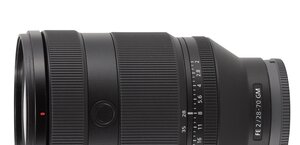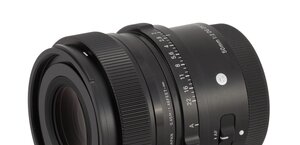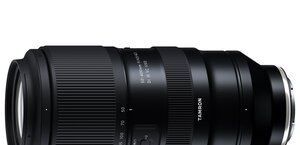Tokina AT-X PRO FX SD 70-200 f/4 VCM-S
4. Image resolution
The results of the Tokina are easily comparable to the results of the Nikkor AF-S 70–200 mm f/4.0G ED VR, which was tested on the same body. Let’s just remind here that the best value in the frame centre, amounting to about 44 lpmm, it got by f/5.6 at 70 and 135 focal lengths; it fared the weakest when wide open at 200 mm with the MTFs amounting to just 35 lpmm.
The comparison with the
Canon EF 70–200 mm f/4L IS USM is going to be a bit trickier – we tested it in 2007 on an 8-megapixel sensor of the Canon 20D and the MTFs you get are about 1-2 lpmm lower than those produced by the D3x sensor. The peak of its possibilities the Canon 70-200 mm f/4.0 IS got in the range from 135 to 200 mm by f/5.6-8.0, reaching almost 42 lpmm. Taking into account the difference in the sensor densities these results are almost the same as the results of the Nikkor 70-200 f/4.0 VR. What differs them is the weakest focal length: in the case of the Canon it was the 70 mm in the case of the Nikkor - 200 mm.
Please Support UsIf you enjoy our reviews and articles, and you want us to continue our work please, support our website by donating through PayPal. The funds are going to be used for paying our editorial team, renting servers, and equipping our testing studio; only that way we will be able to continue providing you interesting content for free. |
- - - - - - - - - - - - - - - - - - - - - - - - - - - - - - - - - - - - - - - - - - - - - - - -
Let’s check how the tested Tokina compares here – its results in the frame centre are presented on a graph below.

First thing worth your attention is an even performance across the focal range. The differences are really slight; the 200 mm focal length fares just a tad worse than the other ones. The second important thing is the fully useful image, being produced already from the maximum relative aperture – at every focal length the MTFs amount to 34-36 lpmm. Also a good image quality near f/8.0, where the lens reaches a peak of its possibilities exceeding slightly a level of 40 lpmm, is an important feature.
The results are really very good and everything would be just perfect if not for the rivals. Both stabilized Canon and Nikon lenses with the same parameters as the tested Tokina fare a bit better. The only lens the Tokina can compete with successfully is the older Canon EF 70-200 f/4L USM, without any stabilization. Still the price tag of the tested lens might remain a problem – even though its performance is similar and it is stabilized it is also almost two times more expensive than its older rival.
Now let’s check the situation on the edge of the APS-C sensor.

The performance is no longer as even as in the frame centre - you can notice that the 70 mm focal length fares the best and the 200 mm is the worst. Still you should emphasize the fact that the lens reaches a level of about 30 lpmm already at the maximum relative aperture so the images it produces are useful – no reasons to complain here.
However the stabilized Canon and Nikon lenses fared better – their advantage is especially visible by f/4.0 and f/5.6. Once again only the older Canon 70-200 mm can be beaten by the tested Tokina.
Now let’s progress to the edge of the full frame sensor and see how the Tokina performs there.

You can see differences between particular focal lengths but this time they are distinct near f/8-f/16 and almost evened out near the maximum relative aperture, with the MTFs keeping a level of 28-29 lpmm no matter what focal length you apply. It is a tad below the decency level threshold but very close to it - some users might consider the images fully useful.
What’s more, the performance on the very edge of full frame is a category in which the Tokina can successfully compete with its rivals. Its maximum MTFs and the results at 200 mm and by f/4.0 are higher than those of the Nikkor 70-200 mm VR so the tested lens should be praised.
At the end we present crops taken from photos of our resolution testing chart; the photos were saved as JPEG files along with RAW files, used for generating all the graphs above.
 |






